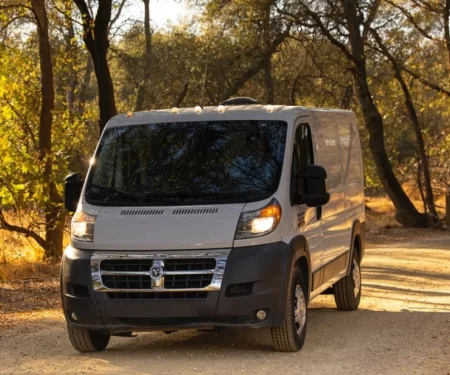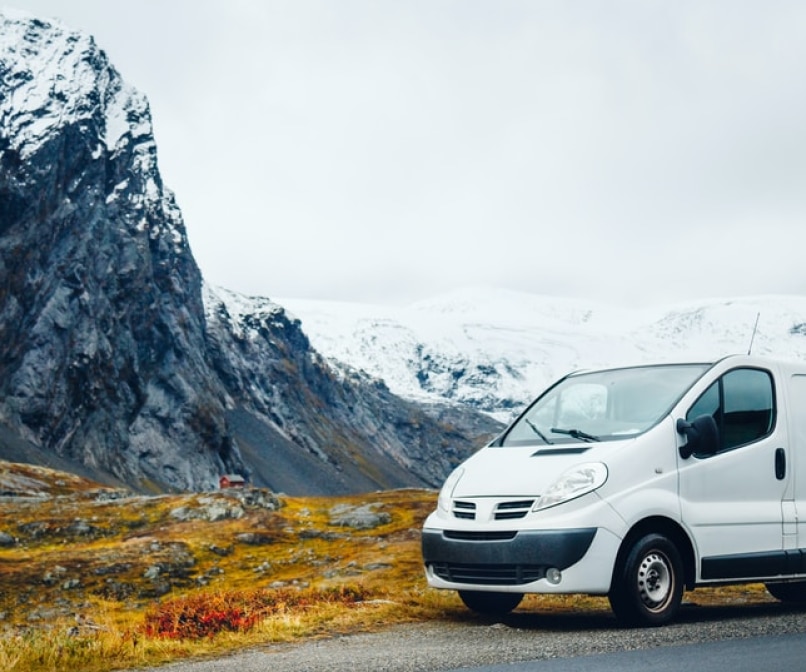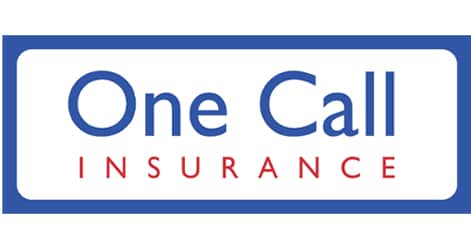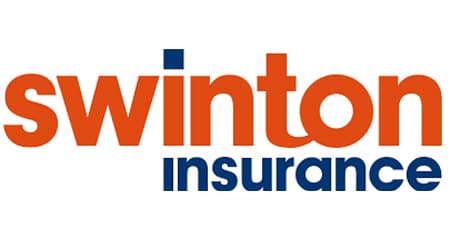Van Insurance
Compare cheap van insurance quotes and save up to £590*
- Compare 60+ insurers
- Find a great deal today
- Buy online in minutes

Discover affordable van insurance tailored for you
Looking for dependable van insurance? You’ve come to the right place. Unlike car insurance, van insurance is specifically designed to shield your van from the risks of the road. By law, you must have at least third-party insurance for your van, but choosing the right policy can be daunting.
That’s where the comparison service comes in. The online comparison tool simplifies the selection process, whether you need insurance for private or business/commercial use. It will guide you through the different types of insurance tailored to your van’s specific needs, helping you understand the coverage levels and offering insights to reduce your premiums.
Explore the options below for a stress-free insurance experience, customised to your van and how you use it.
What is van insurance?
Van insurance is a form of motor insurance that you must have to protect your van from all the risks associated with day-to-day driving. Like regular car insurance, it’s a legal requirement to have at least third-party cover for your van.
Different factors will influence the type of van insurance you’ll need, such as how you use your van, the style, and whether you use it commercially or privately.
Do you need commercial or private van insurance?
When you compare van insurance quotes, you’ll probably notice that there are two types – commercial and private policies. Below you’ll find a breakdown of the two types of van insurance.
Commercial van insurance
Also called business van insurance, the commercial cover is for those who use their vans for work, including travelling to and from business premises. The two main forms of commercial insurance are haulage, meaning goods you’re delivering, and carriage of own goods, which means you’re carrying tools for your work sector.
Private van insurance
Private van insurance is for those who just use their vans for pleasure, social, domestic purposes, or anything else that isn’t business-related. For example, carrying sports items that are too big for the boot of your car or weekend trips.

Types of van insurance policies
Once you’ve worked out whether you need commercial or private van insurance, you’ll need to decide which type of cover is best for you. There are a few different types, but which one is most suitable for you depends on how you’re going to use your van.
Haulage
This type of policy is usually suited to couriers and delivery drivers. It provides cover to those who are transporting other people’s goods in exchange for payment or if various drop-offs are required.
If you’re a courier providing services, it’s a legal requirement to have a basic haulage van insurance policy in place. This will protect against damage to other people’s property when you’re making the deliveries.
Carriage of goods for hire and reward
Carriage of goods for hire and reward, also known as hire and reward insurance cover, is a type of commercial insurance. It will cover you if you make deliveries in a local area, such as food delivery or parcels. However, it doesn’t provide cover if you’re transporting furniture, high-risk, or dangerous goods.
Courier insurance is different to haulage cover – haulage insurance is usually suited to drivers who make deliveries over long distances, with only one destination for each job.
Carriage of own goods
If you use a van for transporting commercial-related tools, goods or equipment, then carriage of own goods is the van insurance policy you’ll need. It’s the van insurance you’ll need if you carry items in your van that are related to your business.
For example, if you’re in the building trade and you use the van to carry your own equipment and tools to and from work. This would also be the right van insurance for shopkeepers or sole traders such as florists.
This policy type also includes travelling to the various places that your job requires, such as client buildings, warehouses, or shops.
Short-term
A short term van insurance policy will cover you to drive the van for a few days or months. Regular van insurance is renewed annually and offers cover for 365 days. This is too much cover if you’re just driving a van for a short period, such as borrowing it from a friend or relative.
A temporary van insurance policy can run for a certain amount of time – this can be decided when you purchase the cover, and it could be a little as a few days or several months.
Classic van cover
If you have a collectable or vintage van, classic van insurance is for you. Different insurers have different ideas of what can be considered a classic van, but it’s typically defined as a van that’s older than 20 years.
If your van is a particularly rare model, you may want to consider classic van insurance. You could also enjoy special features like a guaranteed agreed value.
Black box (telematics) van insurance
A black box, or telematics, insurance policy works out van insurance premiums based on how the vehicle is driven. The insurer will send you a black box that should be fitted to your van.
You’ll typically then have to download a mobile app to link up to the black box technology that’s already installed in your vehicle. The box will then record your mileage, speed, and location data.
Once it’s set up and running, data from the black box is electronically transferred to a central database, where it will be reviewed by the insurance company. The results from this will decide the cost of your premium.
Fleet insurance
Fleet insurance protects multiple vans that are used for commercial purposes in one policy with just one insurer. If you run a company with more than one van, keeping each van insured can be a bit of a nightmare.
This is usually too much for just standard business insurance or regular car insurance which typically only covers single vehicles. Things can get even more complex if you have multiple van drivers working for you, especially if they drive different vans at various times.
Having all of your vehicles and drivers insured on one fleet policy is usually the best option, especially if you can find a policy with just one date of renewal and only one premium.
What levels of van insurance cover can you get?
When it comes to van insurance, you have three levels of cover to choose between. You’re legally required to have at least third party cover, but this won’t protect you or your van. Take a look at your other policy options below.
Comprehensive
Comprehensive van insurance is the highest level of cover that’s available. Fully comprehensive protects your vehicle against fire and damage, as well as protecting your van, you, and third parties in the event of an accident.
Third-party, fire and theft (TPFT)
Third-party fire and theft is the next level down from fully comprehensive van insurance. It will cover you against injury and damage to third parties as well as cover for theft and fire damage to your van.
Third-party only (TPO)
Third-party is the lowest level of van insurance that covers damage and injuries caused to third parties, and it’s what you need to drive your van legally. However, just because third-party is the most basic policy, this doesn’t automatically make it the most affordable.
Additional cover for your van
Breakdown cover
Having breakdown cover means you can get your van back on the road or taken to a garage quickly in the event of it breaking down. You can have breakdown cover added to your policy within your insurance quote.
Courtesy vehicle
Having cover that will provide a courtesy vehicle means you can remain on the road and keep working if your vehicle is damaged in an accident.
Public liability cover
If you’re self-employed, having public liability cover means you’ll be covered against insurance claims from members of the public if they’ve been injured by you at work.
Employers’ liability cover
If you employ any members of staff, employers’ liability cover is a legal requirement. It will protect you against negligence claims made by your employees.
Personal belongings cover
Personal belongings cover will protect possessions and items that belong to you personally against accidental damage or theft whilst they’re stored in your van.
Tool cover
If you keep tools in your van, tool insurance will cover the cost of replacing them if the van is stolen. This means you don’t have to put your business on hold whilst you try to deal with the financial impact of replacing expensive equipment.
Misfuelling cover
Misfuelling is when someone puts the incorrect type of fuel into their vehicle, which is a lot more common than you may think. A misfuelling policy provides cover for the cleaning and draining of the tank, either at a service centre or at the petrol station. The policy will also cover part or the full cost of the wrong fuel.
Multi van coverage
Multi-van coverage, also known as fleet cover, allows you to insure multiple vans on one policy with one renewal date. This saves you from having to take out separate policies for each vehicle. How many vehicles you can insure on a single policy may vary between insurers.
Any driver insurance
Any driver policy provides cover for multiple drivers that all use the same van. Unlike regular van insurance, any driver cover enables all of your employees to drive your van without having to be named drivers on the policy.
No-claims discount
A no-claims discount is when the cost of your insurance premium is reduced based on how long you’ve been driving without needing to make a claim. This discount is typically calculated in years, for example, a 2-year no-claims discount.
If you want complete peace of mind, you can boost your policy with some optional add-ons. These extras allow you to tailor your policy to you and the nature of your business. It gives you complete cover for problems you could potentially face, saving you time, effort, and worry.
How much does van insurance cost?
How much your van insurance policy will cost depends on various factors such as:
- Age: Young and inexperienced drivers are typically seen as higher risk, resulting in more expensive premiums.
- Occupation: Some work sectors are higher risk, so you can probably expect to pay more if the insurer deems your job as risky.
- Location: Some parts of the UK have higher crime rates and road accidents, so insurance premiums will usually be higher in these areas.
- Claims and driving history: If you’ve made multiple insurance claims or you’ve had driving convictions, this will usually raise the price of your insurance.
- The van: Just like car insurance, vans are separated into groups. Those in the higher groups will typically cost more to insure.
How to reduce the cost of van insurance
Van insurance can become quite expensive, especially if you use it for commercial transportation regularly. Fortunately, there are ways of reducing the cost of your policy. Below you’ll find some methods of making your van insurance more affordable.
Compare multiple quotes
One of the quickest and most effective ways of getting cheaper van insurance is to compare various quotes with Utility Saving Expert. Instead of just allowing your policy to renew automatically, compare quotes online.
Pay premiums upfront
Paying for your premium upfront can usually save you money because monthly instalments are similar to a loan repayment, so interest is added. Although it isn’t possible for everyone, paying upfront could provide you with substantial savings if your finances allow it.
Improve vehicle security
If your van has additional security measures installed, such as an immobiliser, approved alarm, or GPS tracker, it could reduce the cost of your premium. However, before you spend money on security measures, check with your insurer to see if it would be worth the extra expense.
Even better, if you can park your vehicle in a safe spot when it’s not in use, such as a locked garage or driveway, it could help to reduce your premium.
When calculating the cost of a premium, van insurance providers consider things such as how safe the overnight parking is and how difficult it would be for thieves to steal the van.
Increase your excess
If this isn’t your first time looking for van insurance, you’ll be pleased to know that you could enjoy lower premiums if you haven’t made a claim before. However, each insurance provider has a different attitude towards their customers’ no-claims histories.
Some providers may count your experience, whereas others start your no-claims bonus from scratch. But remember, if you have a car as well, you can’t use your bonus on both vehicles simultaneously.
It goes without saying that to keep your premium as low as possible, you’ll need to drive sensibly and safely. If you get hit with any points or penalties for speeding or other driving offences, it can affect the cost of your insurance.
If this is the first time you’re purchasing insurance for your van, you can start to build your no-claims after 12 months. For this reason, you may start to benefit from the rewards when your next renewal date comes around.
Avoid vehicle modifications
Van modifications can influence the power and value of the vehicle, which in turn will impact the cost of your premium. Not all modifications will be covered, and if you don’t notify your insurer of them, your policy could become invalid.
Many changes you make to your vehicle could be considered a modification. Whether you’re adding additional seats, changing the interior design, or trying to boost the engine performance, all of these changes can affect how powerful and valuable your van is.
Commonly seen van modifications can include:
- Body kits, vinyl wraps, and spoilers
- External or internal racking
- Additional windows and seats
- Upgrades to the exhaust and engine
- Refrigeration equipment
- Alloy wheels.
Before you make any changes, no matter how little, to your van, it’s essential to ask your insurer if it could impact the cost of your premium. If you’re enquiring about insurance for a van that’s already modified, be sure to provide clear details about it.

What will you need to get van insurance quotes?
Vehicle details
You’ll need the model, registration number and make of the van, as well as details of any modifications. You can usually find these details in your V5C document.
Insurance documents
Your recent insurance documentation will have the details you need to obtain and compare quotes. The documents will also allow you to get claims information and this could affect the prices of the quotes you’re given.
Your personal details
As the driver, your personal details are also needed, including the details of any offences you’ve had in the past, if any.
Customer reviews
Tyler Price
Results appear very quickly on the website, and it is very easy to use. Upon selecting the right insurer, it takes you to their website for completion. As a result, I saved almost £100 over the quote I received from my previous insurer. I’m impressed!
Date of experience: 06 December 2022
Source: Trustpilot
J Osborne
2nd time I’ve used the site. There quite new as comparison sites go, but, what I really like is that not only do they save me plenty of £££, they also donate to fuel poverty charities to help those in need.
Date of experience: 03 March 2020
Source: Trustpilot
Mike Rye
Used to get insurance for delivering as an Uber Eats driver. Got a few quotes from brokers and ended up with a great deal.
Date of experience: 04 March 2020
Source: Trustpilot
Jon Scott
Good service, easy to use. Will use again as helped me save some money.
Date of experience: 04 March 2020
Source: Trustpilot

Why compare van insurance quotes with Utility Saving Expert?
Here at Utility Saving Expert, we understand that shopping around for cheap van insurance quotes is key to enjoying lower premiums. However, it can be an inconvenient and tedious task.
That’s why we’ve made it our mission to help you find great insurance deals quickly and easily. The online comparison tool can compare van insurance quotes from a huge range of top insurance cover providers, allowing you to pick the premium that offers you everything you need.
When you input your details, each van insurance quote provided will be tailored to you so you can find the best deal in minutes, with no hassle and no fuss.
**51% of consumers could save £504.25 on their Car Insurance. The saving was calculated by comparing the cheapest price found with the average of the next five cheapest prices quoted by insurance providers on Seopa Ltd’s insurance comparison website. This is based on representative cost savings from September 2023 data. The savings you could achieve are dependent on your individual circumstances and how you selected your current insurance supplier.
The information on this page is for editorial purposes only and not intended as financial advice.
Frequently Asked Questions (FAQs)
Will my job influence the cost of my van insurance?
Yes, whether you’re taking out van or car insurance, your occupation will affect the cost of your insurance. Insurance companies provide quotes based on statistics, predictions, and information about past claims.
So, you could be the most sensible and careful driver on the road, but if you have an occupation that’s deemed by your insurer as high risk, you’ll likely see the cost of your premium go up.
Generally, retirees and people who have desk jobs will pay less than people who tend to work late. However, even if you do work late shifts, it doesn’t necessarily mean it’ll be impossible to find cheap insurance.
Remember, lots of other factors will influence the cost of your given quotes, including your vehicle, its size, where you live, and how long you’ve been driving.
Why is it so expensive to insure a van?
Van insurance costs more than car insurance because vans generally have larger engines and bigger interior capacities, which means there’s a higher chance of them carrying valuable goods. Because of this, claims are likely to be more abundant, and the higher premiums reflect this.
Additionally, because vans are bigger than many cars, they tend to have solid, windowless sides and backs, decreasing visibility. This makes accidents more likely for drivers who aren’t used to driving vans.
There are also many other factors that impact the cost of van insurance, including:
- The model and make of the van
- The driver’s age and experience
- What the van will be used for
- The driver’s location
- The required level of cover.
What are the age restrictions for van insurance?
If you hold a standard driving license, you’re allowed to drive vans that are up to 3,500kg. However, some insurers have age restrictions, such as they won’t insure drivers under 25 years of age.
These restrictions are put in place because younger drivers are viewed as high risk. Premiums for young drivers are typically a lot higher for this reason too.
Is it illegal to drive without van insurance in the UK?
Yes, it’s illegal to drive a van without insurance in a public place or on the road. Even if the van itself is insured, if you’re not insured to drive it, there’s a chance you’ll be penalised.
If you’re caught driving without insurance or not being appropriately insured to drive the van, the police could hand you a £300 fixed penalty charge and 6 points on your license. If you have to go to court over the matter, you may receive a driving ban and an unlimited fine. The police can also seize and possibly destroy the van that you were driving uninsured.







